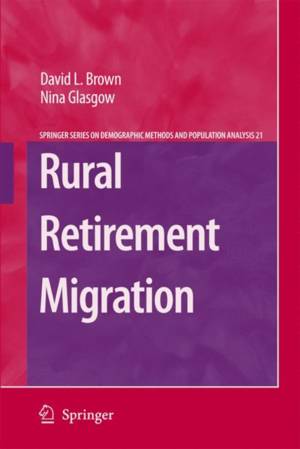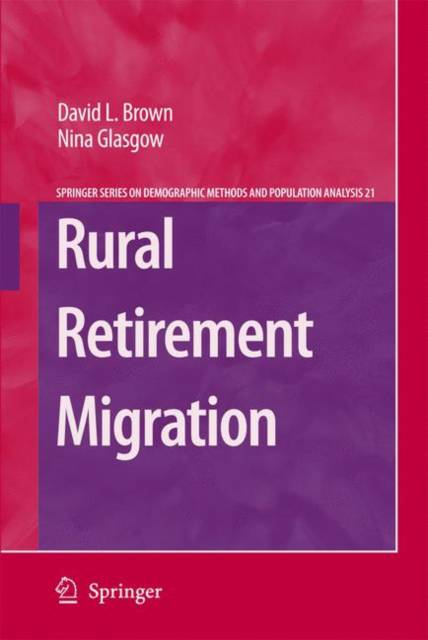
- Retrait gratuit dans votre magasin Club
- 7.000.000 titres dans notre catalogue
- Payer en toute sécurité
- Toujours un magasin près de chez vous
- Retrait gratuit dans votre magasin Club
- 7.000.0000 titres dans notre catalogue
- Payer en toute sécurité
- Toujours un magasin près de chez vous
Description
This book examines the migration of older persons to rural retirement destinations in the United States. While the majority of older persons are residentially stable, those who migrate are disproportionately likely to move to a rural community. Moreover, with the aging of the baby boom generation, particular rural communities can expect to continue attracting older in-migrants in the future.
The book examines rural retirement migration from the older in-migrants' perspective and from the vantage point of the destination communities to which they move. This integrated micro-macro approach permits the authors to view older in-migrants as embedded in particular types of environments that facilitate and/or constrain their opportunities for productive living during older age. It also permits the examination of positive and negative effects of older in-migration for destination communities. The authors use a multiple methods approach featuring a panel survey of older in-migrants and longer-term older residents, in-depth community case studies and county-level census data analysis to produce a grounded study of population aging in the context of rural society.
The analysis examines the challenges and opportunities presented by migration at older ages both for successful aging and for community development. The book pays particular attention to the process through which older in-migrants become socially integrated in their new communities, and it contains rich detail on the social relationships they form, the nature of their civic engagement, and the positive and negative reactions they elicit from longer-term residents.
The volume concludes with a thoughtful discussion of policy lessons learned from the research, and with an examination of high priority research needs on retirement migration.
From the reviews:
"This is not just another book; it is a necessary book, the result of plentiful research and of a balancedwork project." (Environment and Planning A, 2009. Volume 41)
Spécifications
Parties prenantes
- Auteur(s) :
- Editeur:
Contenu
- Nombre de pages :
- 222
- Langue:
- Anglais
- Collection :
- Tome:
- n° 21
Caractéristiques
- EAN:
- 9781402068942
- Date de parution :
- 03-04-08
- Format:
- Livre relié
- Format numérique:
- Genaaid
- Dimensions :
- 156 mm x 234 mm
- Poids :
- 508 g

Les avis
Nous publions uniquement les avis qui respectent les conditions requises. Consultez nos conditions pour les avis.






